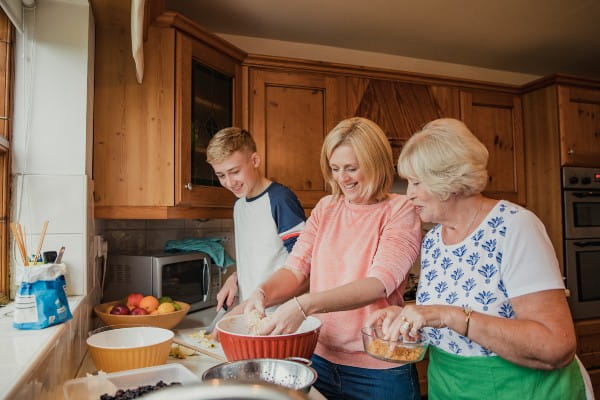People with memory loss can – and should – continue to do everyday activities and the things they love for as long as they’re able. By promoting their independence, they’ll maintain a sense of purpose and be happier.
“You can help someone with memory loss with independence by first engaging them in household tasks, and then make sure they’re staying in touch with their interests,” says Denise Butler, MA, CSA, geriatric assessment clinic coordinator at the Riverside Center for Excellence in Aging and Lifelong Health. “Even if it takes them longer to do things or they aren’t doing them completely right, as long as there are no safety issues, it’s important to keep them active and involved.”
Butler says many tasks can be broken down into simple steps so your loved one can participate. Here are some ideas for supporting their independence:
- If your loved one is in the early or mid-stages of dementia, let them do their morning routine by themselves, and only assist if necessary. They can brush their teeth, wash their face, comb their hair, pick their clothing and put on makeup. Even in the late stages, you can keep them stimulated by having them touch things like their toothbrush and running water.
- In the early stages, your loved one can continue making snacks and meals with minimal or no help. Even in the middle stages of memory loss, they can still do simple kitchen tasks like pouring and mixing already prepared ingredients, setting the table, washing dishes, and putting away the groceries.
- People who are in the early or middle stages of dementia can also do simple household chores like making the bed, folding and putting away laundry, dusting with a feather duster, and sweeping floors. Just remember: The point is to keep them involved and not that they do it perfectly.
- Continue to surround your loved one with their life interests. Play the music they like every day. Adapt their hobbies so they can do them easily. And take them to events they enjoy, like church, ballgames, plays and concerts, until it’s no longer manageable.
- Help your loved one stay as physically active as possible for as long as possible. This not only encourages their independence, it improves their physical and mental health and can help them sleep better. When the weather is nice, take them outside for a walk for the added benefit of being out in nature.
As the dementia progresses, you’ll want to focus less on physical and social activities and think about how you can keep your loved one’s senses stimulated.
“Don’t worry if the activity doesn’t seem very active,” Butler says. “Even just sitting by a sunny window or listening to music makes a big impact on a person’s quality of life.”
Learn more
Learn more about dementia and caring for your loved one with memory loss by reading the following resources from Family Caregiver Alliance:



